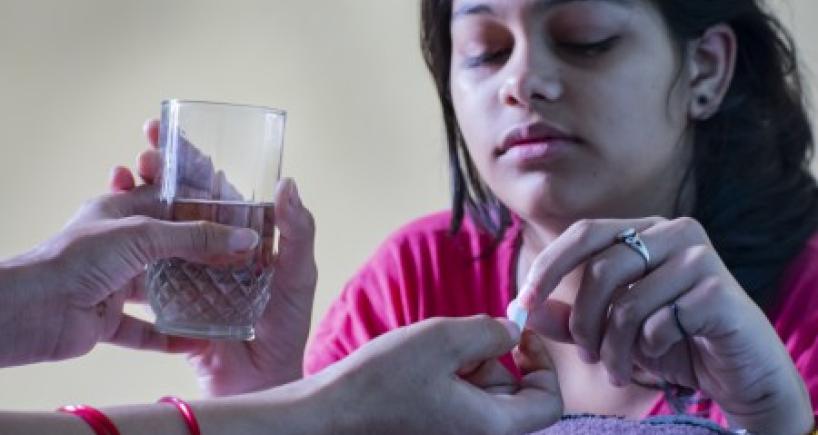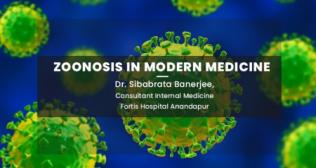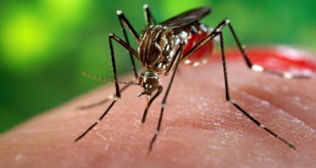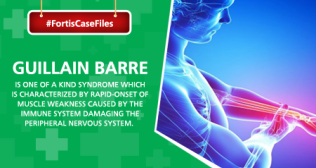
Is Paracetamol A Cure To All Kind of Fevers?
Question: What is fever?
Answer: Fever is the body’s way of heat-killing germs. Just like we try to kill germs by boiling or burning, the body increases the body temperature in an attempt to kill the infecting germs. The more severe an infection, the higher is the fever. Also, for those germs that are heat resistant, the body has to increase its temperature much higher. Viruses are very heat resistant which is why viral infections often results in very high temperatures, and is not easily controlled with normal fever medication like paracetamol.For example, dengue fever symptoms do not abate completely with paracetamol.
Question: Why do we try to control fever?
Answer: Our body can function most effectively within a narrow range of temperature called the “Optimum Temperature”. Outside this temperature range the biochemical processes of our body cannot function properly. Therefore we need to control the temperature. Also children between 6 months and 6 years may be prone to developing seizures with temperature particularly if they have a family history of it, so we may want to reduce that risk. But most importantly, it is to make the child feel better, eat and drink better and help parents cope with their child’s illness. We must remember that controlling fever with fever medicines does not treat the actual cause of the fever which is the infection.
Questions: Is there any downside of actively controlling fever?
Answer: By actively controlling fever, we are actually suppressing body’s own mechanism of fighting the infecting germs. Recent evidences that have surfaced over the past few years are quite surprising. Recent researches have shown that the higher the temperature in severe bacterial infections, the better is the survival. Treatment with paracetamol has shown to increase the duration of illness in diseases like chicken pox and malaria, and the period of infectivity for normal cold. It is very common to prescribe paracetamol after vaccines for children. But researches show that giving paracetamol reduces the effectiveness of vaccines. In the wake of these research findings, a massive HEAT Study was conducted on patients admitted in intensive care with serious infections, which showed that if we do not control moderately high temperatures and instead restrict the paracetamol use only to very high temperature, more patients will survive. This has given rise to the concept of “Permissive Hyperthermia” where, for children, we administer paracetamol only when the temperature goes above 104F rather than the usual practice of using paracetamol for temperature more than 101F. But the biggest danger that we need to be worried about is that paracetamol that all of us think is a harmless medication, is actually the most common medication that causes serious damage to the liver that needs liver transplant, a facility not widely available in India.
Question: What is the danger of getting Liver Failure from paracetamol use during fever?
Answer: We do see this often. Paracetamol is generally safe when used strictly according to its recommended dosage. But problem arises because we often do not realise that we are inadvertently exceeding the recommended dose. Recommended dose for paracetamol is 60mg for each 1 kilogram body weight for an entire 24 hours. And it is given usually at 6 hourly gaps i.e. a total of 4 doses a day. Thus a 10kg baby should have a total of 600mg in a day, usually given as 150mg every 6 hours. Very often, particularly with viral infection, where temperature does not fully get controlled with paracetamol, temperature either does not come down to normal, or does not stay down for full 6 hours. At these times there is often a tendency to repeat the dose before schedule, or giving another formulation that may also contain paracetamol in it as a combination with some other medication. We think it is a different medication but very few of us actually read the composition to find out if it contains paracetamol or not. Thus unknowingly we overdose our children with paracetamol and then find that the child has become jaundiced and once we take him to the hospital we find he has got Liver Failure which is potentially a life threatening condition.
Question: What are the medications that contain paracetamol in combination with some other medication?
Answer: There are many such medications. The Most common ones of which are: Ibuprofen + Paracetamol and Diclofenac + Paracetamol – mostly used for pain and swelling, and sometimes unwisely used for fever as well, owing to the preconception that any medication that relieves pain and swelling (inflammation) also helps with fever Decongestants (often used for cough and cold) contain an antiallergic and a decongestant as a fixed dose combination with paracetamol. Many times we prescribe just plain Ibuprofen, but the medicine shops may inadvertently dispense Ibuprofen’s fixed dose combination with paracetamol, for often the name is similar, with just a “Plus” written next to it. The problem arises for Ibuprofen “Plus” that contains Ibuprofen which is meant to be administered every 8 hourly is combined with paracetamol which is meant to be administered every 6 hourly. Thus if we use this as a substitute for paracetamol and give it 6 hourly, we are giving an overdose of ibuprofen which may cause damage to kidneys, and if we use it 8 hourly, we are not giving adequate dose of paracetamol.
Question: Fixed dose combination medications can be very confusing!
Answer: Indeed. That is why we hardly ever use fixed dose combinations in Developed Countries.
Question: So what to do if fever is not controlled with Paracetamol?
Answer: First we need to decide how important it is to control the temperature. Often a little bit of a temperature may be acceptable. If temperature returns within 6 hours of a paracetamol dose, and we need to control it, we need to give a dose of Ibuprofen to alternate with paracetamol. Ibuprofen is to be given every 8 hours and paracetamol is to be given every 6 hours. Caution should be exercised while using Ibuprofen in dengue prone areas particularly the Dengue seasons, and your doctor should be consulted before starting Ibuprofen for your feverish child. But most importantly if you are prescribed Ibuprofen, you need to make sure that you are not given one of those “Plus” formulations that contain paracetamol in it.
Question: So is it important to check the composition of the tablet or Syrup?
Answer: Absolutely. It is very important to make sure that the composition of your Ibuprofen formulation does not mention paracetamol. If you are unsure, just ask your pharmacist to check the composition for you.
For individuals seeking clarity on paracetamol's efficacy in reducing fever, Fortis Healthcare offers expertise and guidance. Whether it's understanding how paracetamol works, addressing concerns about persistent fevers despite its use, or exploring alternative treatments, Fortis Healthcare provides comprehensive support. Trust Fortis Healthcare for reliable information and effective treatment of fever-related queries.
For individuals seeking clarity on paracetamol's efficacy in reducing fever, Fortis Healthcare offers expertise and guidance. Whether it's understanding how paracetamol works, addressing concerns about persistent fevers despite its use, or exploring alternative treatments, Fortis Healthcare provides comprehensive support. Trust Fortis Healthcare for reliable information and effective treatment of fever-related queries.
Popular Searches :
Hospitals: Cancer Hospital in Delhi | Best Heart Hospital in Delhi | Hospital in Amritsar | Hospital in Ludhiana | Hospitals in Mohali | Hospital in Faridabad | Hospitals in Gurgaon | Best Hospital in Jaipur | Hospitals in Greater Noida | Hospitals in Noida | Best Kidney Hospital in Kolkata | Best Hospital in Kolkata | Hospitals in Rajajinagar Bangalore | Hospitals in Richmond Road Bangalore | Hospitals in Nagarbhavi Bangalore | Hospital in Kalyan West | Hospitals in Mulund | Best Hospital in India | | Cardiology Hospital in India | Best Cancer Hospital in India | Best Cardiology Hospital in India | Best Oncology Hospital In India | Best Cancer Hospital in Delhi | Best Liver Transplant Hospital in India
Doctors: Dr. Rana Patir | Dr. Rajesh Benny | Dr. Rahul Bhargava | Dr. Jayant Arora | Dr. Anoop Misra | Dr. Manu Tiwari | Dr. Praveer Agarwal | Dr. Arup Ratan Dutta | Dr. Meenakshi Ahuja | Dr. Anoop Jhurani | Dr. Shivaji Basu | Dr. Subhash Jangid | Dr. Atul Mathur | Dr. Gurinder Bedi | Dr. Monika Wadhawan | Dr. Debasis Datta | Dr. Shrinivas Narayan | Dr. Praveen Gupta | Dr. Nitin Jha | Dr. Raghu Nagaraj | Dr. Ashok Seth | Dr. Sandeep Vaishya | Dr. Atul Mishra | Dr. Z S Meharwal | Dr. Ajay Bhalla | Dr. Atul Kumar Mittal | Dr. Arvind Kumar Khurana | Dr. Narayan Hulse | Dr. Samir Parikh | Dr. Amit Javed | Dr. Narayan Banerjee | Dr. Bimlesh Dhar Pandey | Dr. Arghya Chattopadhyay | Dr. G.R. Vijay Kumar | Dr Ashok Gupta | Dr. Gourdas Choudhuri | Dr. Sushrut Singh | Dr. N.C. Krishnamani | Dr. Atampreet Singh | Dr. Vivek Jawali | Dr. Sanjeev Gulati | Dr. Amite Pankaj Aggarwal | Dr. Ajay Kaul | Dr. Sunita Varma | Dr. Manoj Kumar Goel | Dr. R Muralidharan | Dr. Sushmita Roychowdhury | Dr. T.S. MAHANT | Dr. UDIPTA RAY | Dr. Aparna Jaswal | Dr. Ravul Jindal | Dr. Savyasachi Saxena | Dr. Ajay Kumar Kriplani | Dr. Nitesh Rohatgi | Dr. Anupam Jindal |
Specialities: Heart Lung Transplant | Orthopedic | Cardiology Interventional | Obstetrics & Gynaecology | Onco Radiation | Neurosurgery | Interventional Cardiology | Gastroenterologist in Jaipur | Neuro Physician | Gynecologist in Kolkata | Best Neurologist in India | Liver Transfer |

















